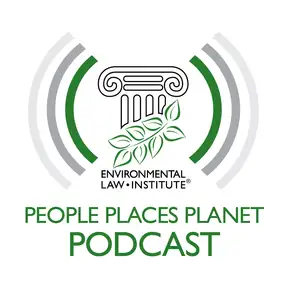Reimagining the Role of Biogas for Environmental Justice
How can we leverage renewable energy standards to better aid vulnerable communities so that energy systems advance rather than thwart environmental justice? ELI’s Georgia Ray talks to two people who have been following the issue closely: Carlos Garcia, a Federal Policy Manager at Bloom Energy, and Joel Porter, a Policy Manager for CleanAIRE NC. For more, contact Carlos Garcia via email; check out Bloom Energy’s webpage on biogas and its resources on energy sources for animal agriculture; and/or read about the issues Joel Porter describes in these articles on: wood pellets, marginalized communities in the American South, biogas and methane leaks, hog farms, and manure wastewater. Also check out Joel’s blog on the cost of livestock factory farming in North Carolina.
The renewable fuel standard program seeks to reduce greenhouse gas emissions, grow the United States’ renewable fuels sector, and lessen our reliance on imported oil. At its most basic, the program requires a certain volume of renewable fuel to replace or reduce petroleum-based transportation fuel, heating oil, or jet fuel. Yet, the program fails to confer benefits to all Americans, and in some respects, it may even disproportionally burden disenfranchised communities. How can we leverage renewable energy standards to better aid vulnerable communities so that energy systems advance rather than thwart environmental justice? In this episode, ELI’s Georgia Ray talks to two people who have been following the issue closely: Carlos Garcia, a Federal Policy Manager at Bloom Energy, and Joel Porter, a Policy Manager for CleanAIRE NC.
Interested in learning more? Contact Carlos Garcia via email; check out Bloom Energy’s webpage on biogas and its resources on energy sources for animal agriculture; and/or read about the issues Joel Porter describes in these articles on: wood pellets, marginalized communities in the American South, biogas and methane leaks, hog farms, and manure wastewater. Also check out Joel’s blog on the cost of livestock factory farming in North Carolina.
★ Support this podcast ★
Creators and Guests
Host
Georgia Ray
Georgia Ray joined ELI as a Research Associate in August 2021. She is currently working on projects related to best practices in sustainable land-based aquaculture, wetlands for hazard mitigations, wetland regulation, and digital economy and the environment. She is also the People Places Planet Podcast host. Previously, she was involved with projects related to environmental crimes in Peru and intergovernmental environmental enforcement. Before coming to ELI, Georgia worked with the Penn Program in Environmental Humanities studying the environmental justice legacy of fossil fuel in Philadelphia and was a Kleinman Center for Energy Research Leadership Fellow. She also researched the impact of public transportation on refugee integration in the Denver area, used GIS technology to understand public perception of Green Stormwater Infrastructure in Philadelphia, and authored a report for the Philadelphia City Planning Commission surrounding best practices for Urban Climate Change Mitigation. She grew up in Denver, Colorado and graduated from the University of Pennsylvania with a BA in Urban Studies, Cognitive Science, and Philosophy.
Editor
Colin Gipson-Tansil
Colin Gipson-Tansil joined ELI in January of 2014 by way of the Great Lakes State. Colin serves as ELI’s Senior Digital Media Producer where he oversees digital media needs at seminars, webinars, and events, manages social media sites, assists with support of ELI’s various websites, and produces videos as well as podcasts. Colin earned his M.A. in Producing for Film, TV and Video from American University. Prior to his Master's degree, received his B.A. in Media Arts and Technology with a concentration in Film, Radio and TV from Michigan State University.

